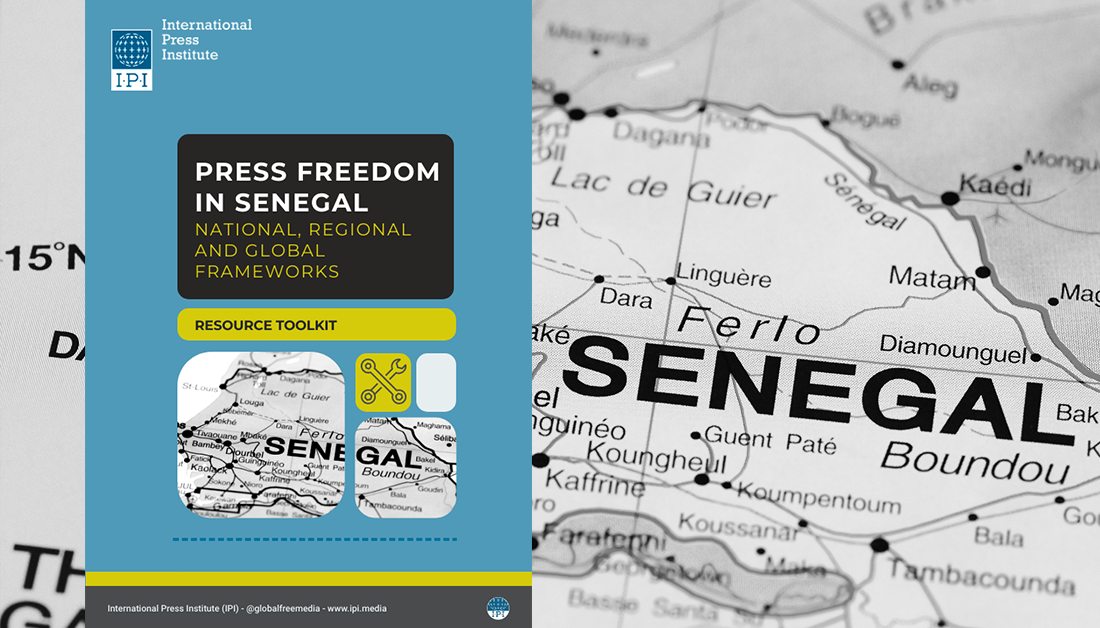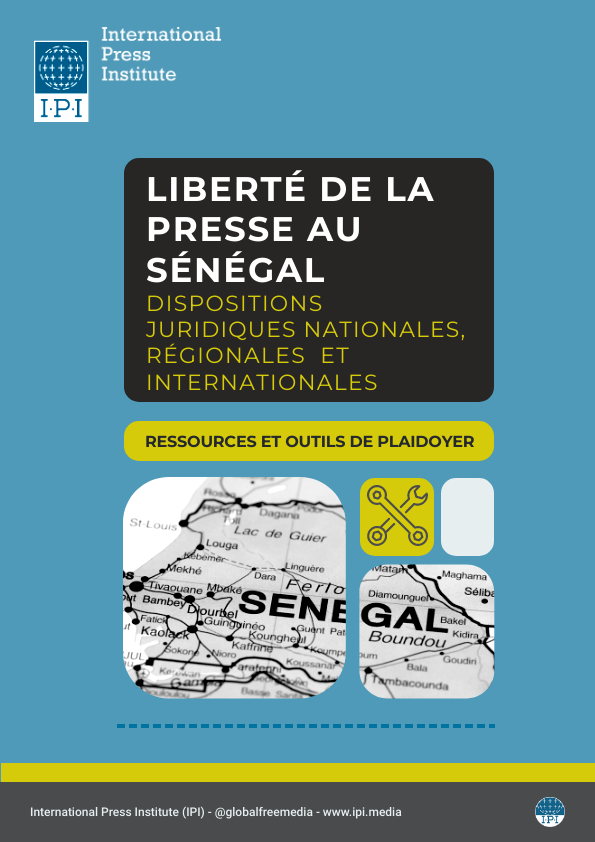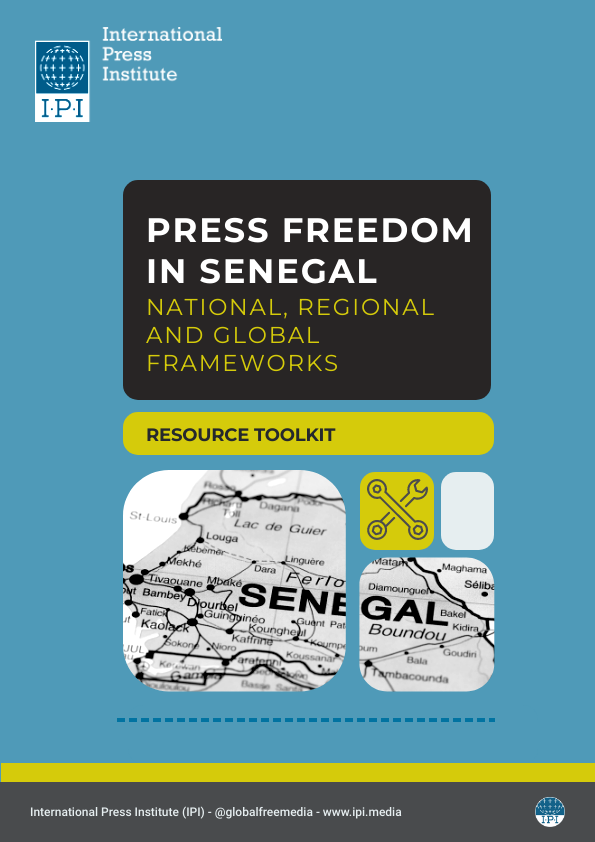IPI’s monitoring has documented a troubling rise in press freedom threats and violations this year in Senegal, including unlawful arrest and detention of journalists as well as instances of censorship. In June, July, and August 2023, the government shut down the internet during public demonstrations and blocked TikTok. Another example is the case of journalist Pape Ale Niang, who has been arrested three times this year, while Walf TV has also been suspended several times.
It is against this backdrop that IPI teamed up with the Senegalese digital rights group Jonction and the Media Foundation for West Africa to develop a toolkit highlighting the legal frameworks and commitments protecting press freedom in Senegal. This resource can be used by advocates, journalists, and other stakeholders to hold the government accountable to domestic and regional standards protecting journalists’ rights.
Senegal has ratified several instruments at both the international and regional levels that places obligations on it to uphold press freedom. These include the African Charter on Human and People’s Rights, the Convention against Torture and other Cruel, Inhuman or Degrading Treatment of Punishment, and the International Covenant on Civil and Political Rights among others. The Constitution of the Republic of Senegal also guarantees the fundamental rights to freedom of expression, freedom of opinion, freedom of the press, and freedom of information.
READ THE FRENCH VERSION OF THE TOOLKIT HERE (PDF FILE)
Despite these commitments to press freedom, Senegal has adopted legislation that limits and undermines these rights, including provisions of the country’s Criminal Code and Press Code. In this toolkit, we highlight some of these problematic provisions and cases of press freedom threats and violations.
As Senegal heads toward general elections in February 2024, IPI hopes that the stakeholders working to protect and defend media freedom in Senegal and beyond can benefit from this toolkit as a resource to improve the operating environment for journalists in Senegal.
Download


